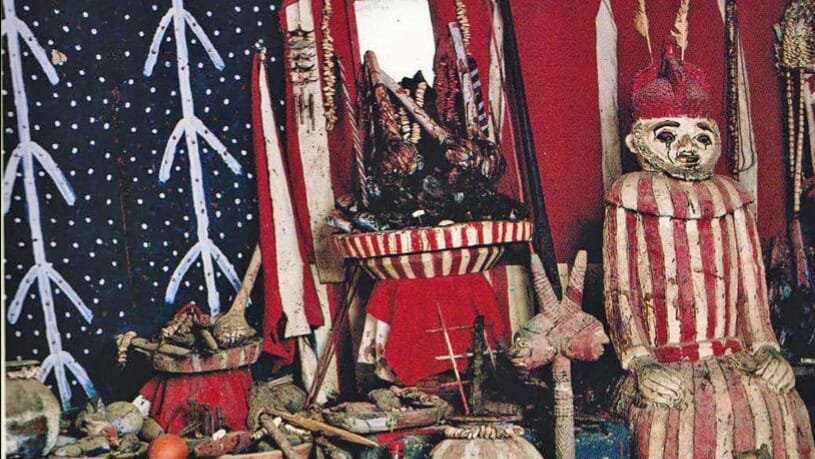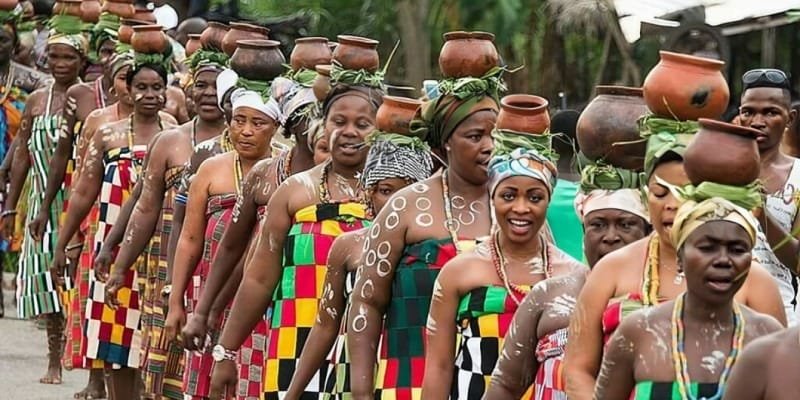Juju is a foreign name used to describe some of the traditional practices of Western African cultures. The name is believed to have been introduced by the French when they had contact with Africa, as juju is considered the corruption of “joujou.” Joujou means plaything in French.
On the other hand, some scholars believe that the name juju is from one of the West African cultures, even though the origin of the word cannot be properly pinpointed. Juju refers to the spirituality and belief of the indigenous West Africans. It is a name that represents the people’s worship of idols and their use of charms, amulets, rituals, and sacrifices. Juju can have a positive or negative connotation depending on a particular experience. It is a term associated with West African countries such as Nigeria, Togo, Benin Republic, Ghana, and various other countries in the region. Juju also extends outside the region to countries like Cameroon and Congo.
Juju and its beliefs have been in existence and practised in West Africa for years, even before the advent of colonialism. A lot of the cultures in this region practised juju before the incursion of Islam or Christianity into the region. It only had and was neglected after these new religions entered the region. What’s the history of juju, and what are the ancient rituals connected to it?
What’s the history of Juju?
Juju’s history cannot be factually traced since West Africa doesn’t have any available written records about the beginning of the juju practice. However, the practice is as old as the advent of Western civilisations. Juju goes hand in hand with the African traditional religion since it involves the worship and adoration of idols, rituals, charms, amulets, and sacrifices.
Juju was born out of people’s desire for spiritual connection and protection. Juju is utilised for protection, worship, and personal advancement. Thus, West African people may have found solace in Juju since the beginning of their respective cultures. In the 15th century, the earliest contact of the Europeans and the region, explorers noted down juju practice, especially in the Benin Kingdom in present-day Nigeria.
In the region, there is a widespread belief in juju. Since the practice and reverence of juju have been in existence for centuries, it has been deeply ingrained in the minds of the people. In the modern age, most of the people living in the region have converted to Christianity and Islam; notwithstanding that, a good majority of the people still believe in the existence and efficacy of juju.
Among modern Nigerians, juju is mostly referred to in negative situations as it is seen as a destructive practice. The common idea of juju is that it is used for protection and harm. Therefore, even though over 95% of Nigerians identify as Christians or Muslims, juju is feared and sometimes revered by most Nigerians.
A Journey through Juju’s Ancient Magical Rituals

As stated earlier, juju is as ancient as different African cultures. It was introduced as a means of protection, spirituality, and personal advancement. In juju practice, there is the use of symbols to represent powers like idols, charms, and amulets. There is also the use of rituals, magic, and sacrifice. In addition, there is the constant worship and reverence of the power to enhance its efficacy.
There are usually magical rituals in the practice meant to enhance and propel the power of the juju. Since ancient times, juju has usually worked with symbols, and these symbols or objects often have a spiritual connection to a human or spiritual being. For instance, to make a protection amulet for a person, a juju priest will need a part of the person’s body or properties to spiritually connect to the person. If there is no connection, the juju will not work.
Then, the juju priest will get into the process of the magical rituals by offering sacrifices to the idol on behalf of the person. These sacrifices are to make the charms or amulets effective. The sacrifices might be killing an animal, offering the idol gifts, or it can also involve a person undergoing a hard task to appease the idol. When this is done, the charms, amulets, or any other thing will become efficient.
Juju cannot work without sacrifice or offering, and there must be a spiritual connection to a person for it to work. Juju has been used in both good and bad situations. It is used for protection and development, and it is also used for harm. Juju can be used to control and manipulate a person. According to the BBC, African human traffickers are said to coerce women into prostitution through juju control. Furthermore, there are several claims by Africans that people have been killed through the power of juju.
Conclusion
Juju is Africa’s ancient religious practice that has been passed down from generation to generation. Juju usually involves magical rituals and sacrifices for efficiency and effectiveness. It is a process involving a juju priest as an intermediary between the idol and a person. To make juju efficient, there must be a symbol and a spiritual connection of a person to that symbol. Juju is widely feared and revered in Africa to this day, even though a majority of Africans now identify as Christians and Muslims.














